TheRoundup is reader supported. We may earn a small commission when you make a purchase via links on this site, at no cost to you.
All products are personally reviewed and tested in accordance with our Review Methodology.

Traditional coffee production is bad for the environment. The coffee industry contributes to deforestation, water pollution, and pesticide use.
Also, if you're anything like me, too much caffeine can lead to jitters and afternoon energy crashes.
That's why I love sustainable coffee alternatives. They let me enjoy my coffee rituals guilt-free and without negative side effects.
I've tried them all and found some fantastic options that deliver flavor, focused energy, and sustainability.
Whether you're switching to matcha, mushroom coffee, or other unique blends, I've got you covered.

✔ Rich, Full-Bodied Flavor
✔ Improves Gut Health & Immune Function
✔ Provides Sustained Energy

Why It's Best for A Morning Kick-Start: The ceremonial cacao activates my metabolism and provides a rich source of antioxidants. This helps to wake up my body and mind without the crash associated with traditional coffee.
The inclusion of fermented Pu'er tea is also brilliant. It produces a steady release of caffeine paired with L-theanine. This gives me calm and focused energy all morning without caffeine-induced jitters.
Personal Experience: The high-quality cacao gives this drink a deep, chocolatey base. I also love the subtle notes of lychee, cherry, and spices. It feels luxurious and comforting, far from the bitterness or weird aftertaste of many of the other alternatives I tested.
Nandaka has become a key part of my morning routine. It's a delicious, healthy way to start the day. It gives me sustained energy and a sense of well-being.
I also love the use of adaptogenic mushrooms. They help balance stress levels and enhance my mood, making my mornings enjoyable and productive.
About the Brand: Pique sources ingredients from some of the planet's most biodiverse and ecological regions.
Its products include ingredients from places like the pristine mountains of Kagoshima, Japan, the sun-drenched coasts of Calabria, Italy, and the primordial forests of Yunnan, China.

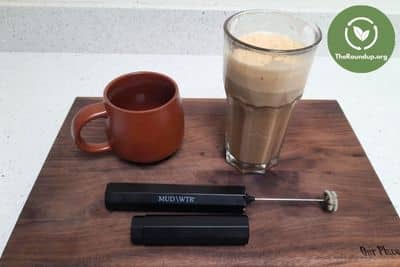
Why It's Best for An Afternoon Latte Energy Boost: The functional mushrooms in MUD\WTR Original and Creamer enhance physical performance and stamina.
Because of this, MUD\WTR is my go-to drink for staying productive and alert after lunch.
Personal Experience: I initially didn't like the taste of MUD\WTR, but I loved how it made me feel. So, I was determined to find the perfect recipe for my taste.
Thanks to the excellent MUD\WTR customer care team, I soon found my dream mix:
- 6.5oz of water and 6.5oz of milk in a big mug
- Heat in the microwave (full power for 3mins 20secs)
- Add 1tbsp of MUD\WTR Original and 1tbsp of MUD\WTR Creamer and froth for 10sec
- Add 1tsp of honey or maple syrup
The taste is similar to a chai latte but with added depth from the cacao and sweetness from the coconut-based creamer.
The energy boost is steady and sustained, keeping me focused and productive until the end of the day. I also find the calming effects of reishi make winding down in the evening more manageable. This helps improve my sleep quality.
About the Brand: MUD\WTR was created to find a healthier, balanced alternative to coffee. Its founder, Shane, loved the ritual of coffee but disliked the dependency, jitters, and disrupted sleep it caused.
After experimenting with ingredients from his travels in Brazil and India, he developed a unique blend.
The mushrooms used by MUD\WTR are organically grown in California. This avoids the common practice of sourcing from China and gives better control over growing conditions.
MUD\WTR and Pique are two of my favorite wellness brands, making by far my favorite two eco-friendly coffee alternatives.
I love the convenience and the numerous positive health impacts of Nandaka and MUD\WTR.
However, there are other excellent options that might better suit your taste.
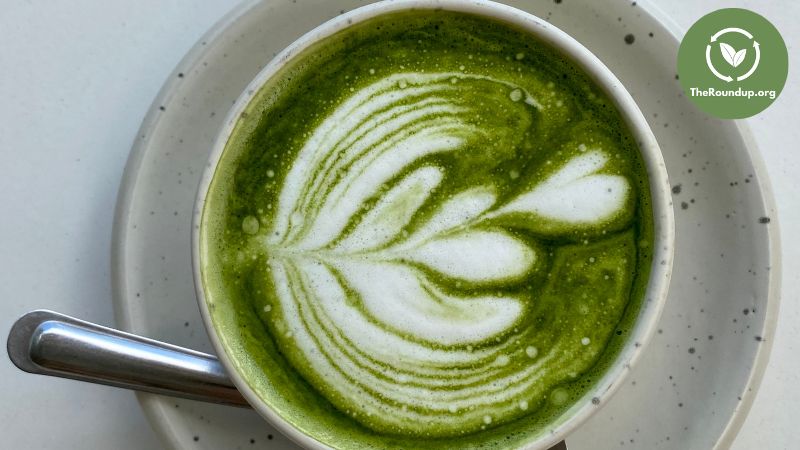
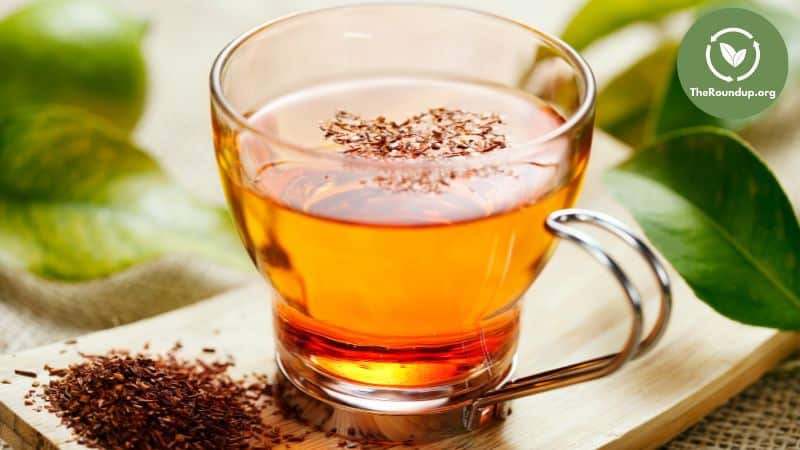
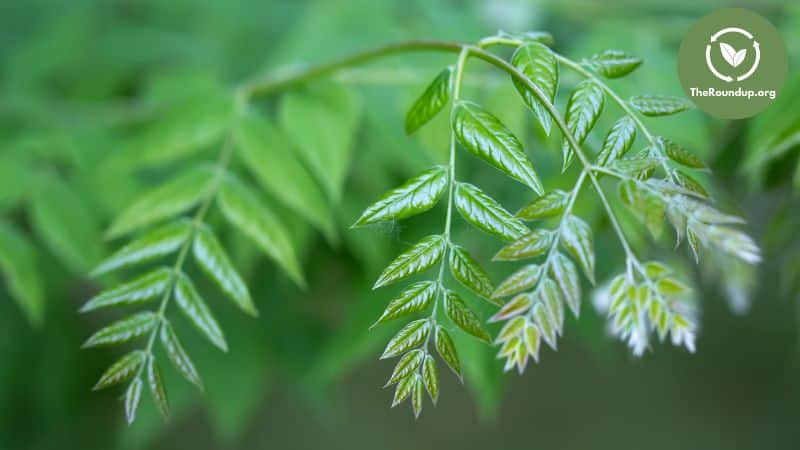
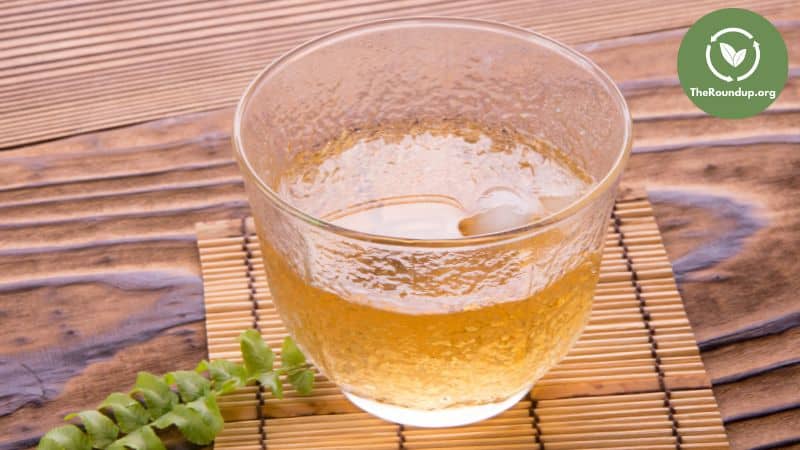
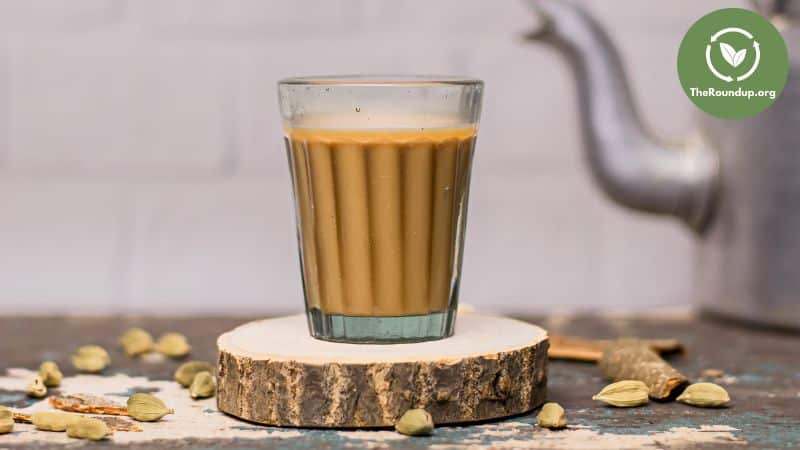
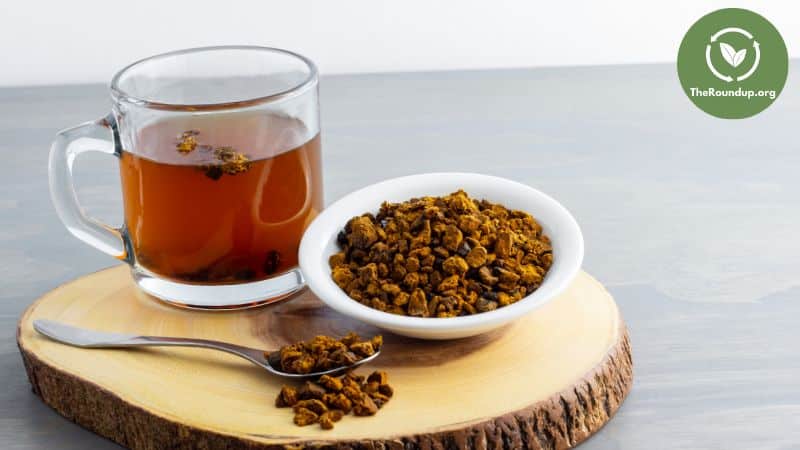
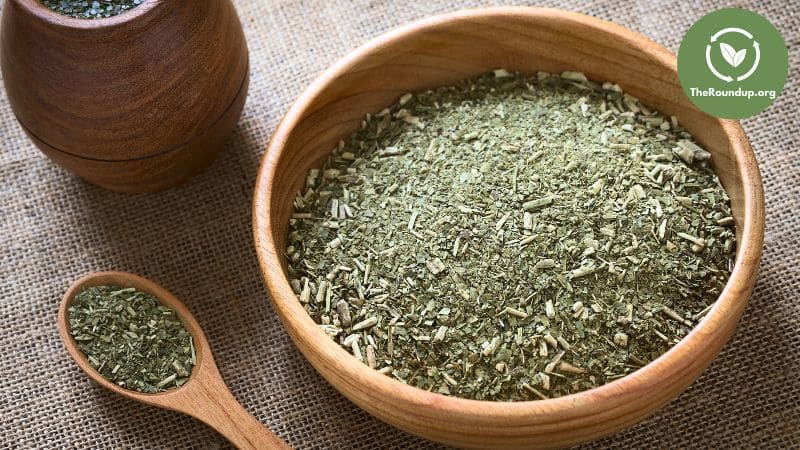
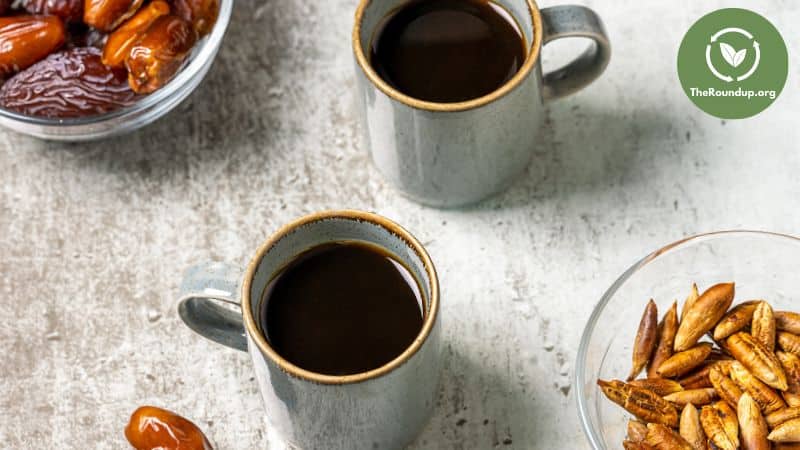

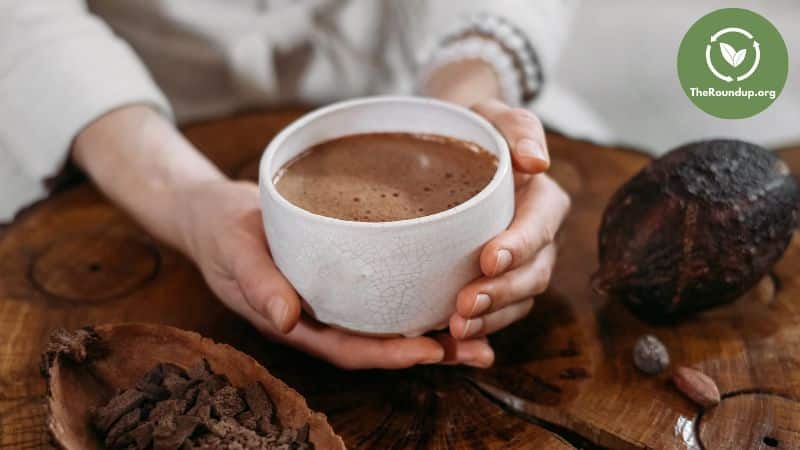
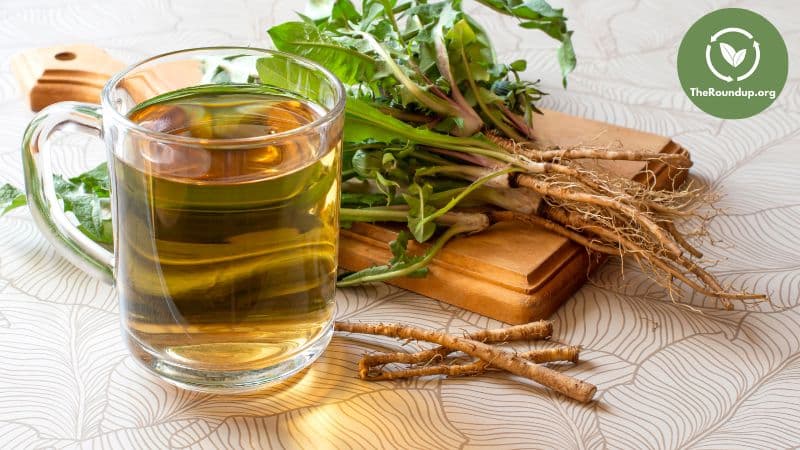
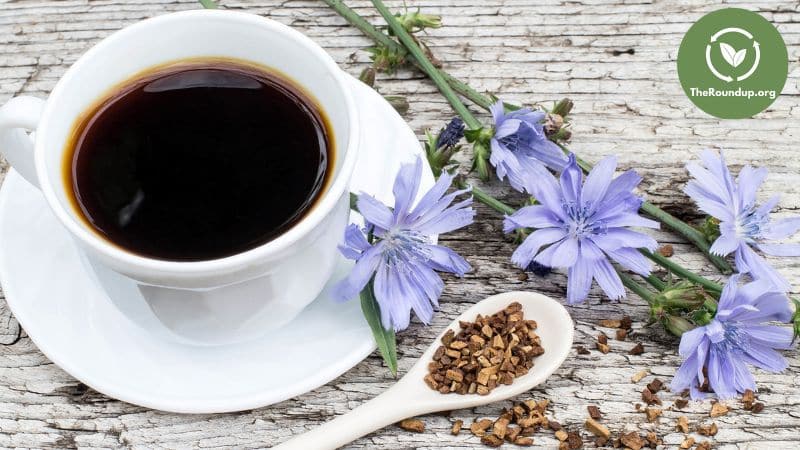
Coffee farming often leads to deforestation. This is especially common in tropical regions where rainforests are cleared for plantations.
This destruction of natural habitats threatens biodiversity, displacing animal species and disrupting ecosystems.
It's predicted that by 2050, half of all current coffee plantation land may become unproductive.
It takes about 140 liters of water to produce a single cup of coffee.
High water demand strains local resources, especially in areas with existing water scarcity.
Coffee processing also generates wastewater with organic matter and pollutants. This can contaminate rivers and lakes if not treated properly.
Industrial coffee farming relies heavily on pesticides and fertilizers to maximize yield.
These chemicals can leach into soil and waterways, harming local plants and wildlife.
Pesticide exposure also poses various health risks to coffee farm workers.
Many coffee farmers work under challenging conditions and receive low wages.
The conventional coffee trade often exploits small-scale farmers, trapping them in cycles of poverty.
As mentioned above, traditional coffee farming has a significant environmental impact.
By choosing alternatives, you support methods that reduce this impact.
Eco-friendly options often use less water, avoid harmful pesticides, and promote biodiversity.
Many of the recommendations in this guide are rich in antioxidants. They help boost your immune system, improve skin health, and even aid in weight management.
Also, avoiding pesticides means fewer harmful chemicals in your drink, leading to better overall health.
Do you want to reduce the environmental impact of your daily cup of coffee without giving it up altogether?
If so then sustainable coffee is what you need.
Your options include the following.
Mold-free coffee is sourced from beans grown and processed with ethical and environmental considerations in mind.
This means they're often better for you, the planet, and everyone involved in the supply chain.
Lab-grown coffee uses cellular agriculture in place of traditional farming.
This innovative method involves cultivating coffee cells in bioreactors. This mimics the natural growth process without needing soil or extensive water resources.
Adaptogenic alternatives (such as Nandaka and MUD\WTR contain substances that help the body adapt to stress and promote overall balance. Mushrooms (such as reishi, chaga, and lion's mane) are popular adaptogenics.
The most environmentally friendly coffee options include shade-grown, organic, and Fair Trade certified.
The most sustainable way is to choose coffee companies that are certified organic and Fair Trade.
This guide contains numerous ideas for drinks you can switch to instead of coffee.
Starbucks has made significant efforts toward sustainability, such as sourcing most of its products through its Coffee and Farmer Equity (C.A.F.E.) Practices program.
Matcha is often considered healthier than coffee due to its high antioxidant content, particularly catechins, which have many health benefits.
Choosing sustainable alternatives to real coffee can help reduce greenhouse gas emissions and improve your health.
Adaptogenic blends like Nandaka and MUD\WTR are my absolute favorite. They're sustainable, convenient, delicious, and deliver stable all-day energy.
Other beanless coffees, such as Chaga and Rooibos, are also tasty and still gentle on the planet.
Whether you're looking to replace your morning coffee or find a healthier afternoon pick-me-up, there's a perfect beverage waiting for you in this guide.

Our core values mean we always prioritize sustainability over profit. We carefully evaluate and personally test every product to ensure they meet our high standards. All products recommended in this article were tested in accordance with our Review Methodology.
TheRoundup.org - As Seen On
